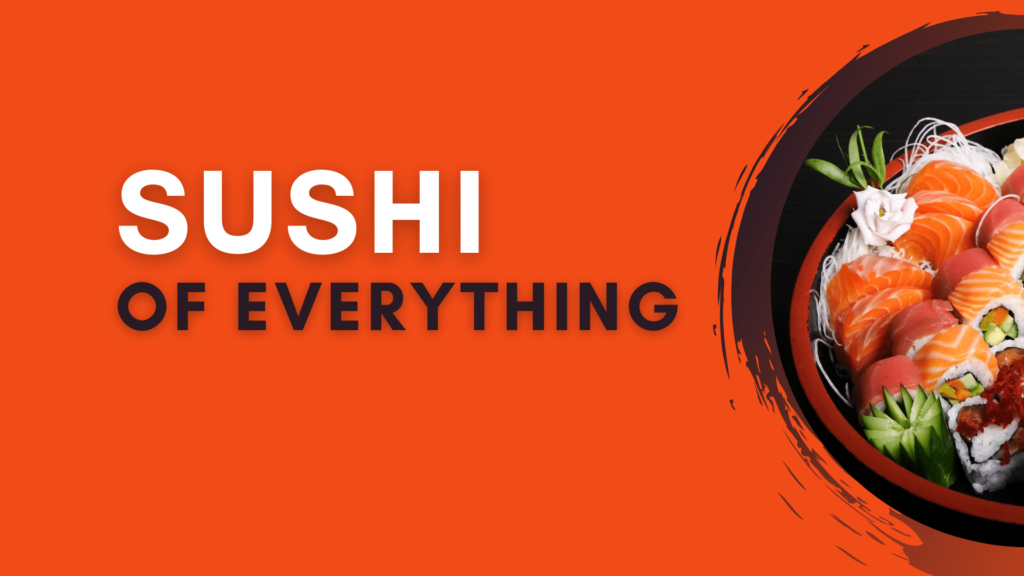In the bustling streets and vibrant neighborhoods across the globe, Asian restaurants stand as culinary beacons, offering a taste of rich traditions and flavorsome dishes. Yet, one might notice a peculiar trend: many of these eateries remain closed on Mondays. Why is this the case? This article delves into the reasons behind this widespread practice, shedding light on a question that has puzzled many food enthusiasts.
Understanding the Tradition
A Day of Rest and Preparation
For numerous Asian restaurants, Monday is a day earmarked for rest and rejuvenation. After a long week of serving countless diners, chefs and their teams take this time to pause and recharge, ensuring they can continue to offer high-quality food and service in the days to follow. This break is not only a respite for the staff but also an opportunity to maintain a high standard of culinary excellence that patrons have come to expect.
Fresh Ingredients for the Week
Asian cuisine is renowned for its emphasis on fresh, high-quality ingredients. Many restaurants close on Mondays to prepare for the week ahead, restocking their kitchens with the freshest produce, meats, and seafood. This ensures that the dishes served throughout the week meet the establishments’ high standards, offering a gastronomic experience that is both authentic and delicious.

Strategic Business Decision
The decision to close on Mondays is also a strategic one. Historically, Mondays tend to be slower for the restaurant industry, with fewer patrons dining out. By closing on this day, Asian restaurants can minimize operational costs such as labor and utilities, which might not be justified by the lower revenue typically seen at the start of the week. This careful management of resources is crucial for the sustainability and success of these businesses.
Subtle Cultural Influences
In some cases, the practice of closing on Mondays can be traced back to cultural traditions and practices in Asia. Specific days of the week may be considered more auspicious for rest or spiritual reflection, influencing restaurant owners’ decisions on operational hours. While not universally applied, these cultural nuances contribute to the mosaic of reasons behind the Monday closures.
Ensuring Consistent Quality and Service
Above all, the decision to close on Mondays is deeply rooted in a commitment to quality and service. By taking this day to rest, prepare, and manage resources effectively, Asian restaurants ensure they can offer an exceptional dining experience for the rest of the week. Patrons are thus guaranteed a meal that is not only delicious but also crafted with care and attention to detail.

Why are Chinese Restaurants Closed on Mondays?
In the expansive world of culinary arts, Chinese cuisine has carved a significant niche for itself globally, with Chinese restaurants becoming a staple in every corner of the planet. A unique feature that distinguishes these establishments is their common day off: Monday. This nearly universal practice among Chinese restaurants has ignited numerous queries and speculations.
Before diving into the reasons, it’s crucial to acknowledge that this tradition isn’t merely a whimsical choice. A variety of factors, from operational logistics to cultural customs, play into this fascinating habit. This article aims to shed light on these reasons in the following segments.
7 Common Reasons You Must Know About
Curious about why your preferred Chinese restaurant isn’t open on Mondays? Prepare to discover the top seven reasons behind this common inquiry.
Supply and Freshness
A principal reason for the Monday closures of Chinese restaurants lies in their dedication to the supply and freshness of ingredients. Chinese culinary tradition places immense importance on the quality and freshness of its ingredients. Indeed, the freshness of the produce often dictates the excellence of the dishes presented. Whether it’s succulent meats, crisp vegetables, or aromatic herbs, each component must be at its best to convey the distinct flavors and textures characteristic of Chinese cuisine.
Tradition and Cultural Influences
Cultural Traditions and Practices
Cultural traditions and practices significantly influence why Asian restaurants, particularly Chinese ones, often close on Mondays. In Chinese culture, specific days carry profound significance, and these deeply ingrained cultural beliefs can shape business practices, including the operational schedules of restaurants.
At the heart of Chinese culture lies Feng Shui, a practice that deems certain days more auspicious than others for initiating various activities. This belief suggests that commencing the workweek on Monday may attract bad luck. Consequently, many Chinese establishments, restaurants included, opt to begin their week on Tuesday, thus explaining the prevalent trend of closing on Mondays.

Top of Form
The restaurant sector is notorious for its challenging conditions. Extended shifts, nights, and the expectation to work through weekends and holidays frequently lead to high levels of stress and burnout among workers. A primary rationale for the closure of many Asian restaurants on Mondays is to afford their staff a well-deserved break.
Operating a restaurant demands immense effort and commitment. The tasks, ranging from chefs and kitchen personnel crafting a multitude of dishes to servers meeting patrons’ needs and ensuring a pleasant dining experience, are strenuous and often go unrecognized. Remaining operational every day of the week can place a significant burden on these dedicated individuals, affecting their physical and mental well-being.
Cleaning and Maintenance
As with any food service venue, cleanliness and hygiene must be top priorities for a Chinese restaurant, particularly in the kitchen area. The significance of sustaining a spotless kitchen is paramount. A clean environment wards off foodborne illnesses, boosts food safety, and plays a crucial role in the overall quality of the cuisine offered. Routine cleaning and maintenance are fundamental to achieving these objectives.
In numerous Chinese restaurants, Mondays are commonly allocated as the day for comprehensive cleaning and equipment upkeep. This scheduling permits the maintenance team to focus on areas that may be neglected during the standard end-of-day cleanup routines.
Business Strategy
Opting to shut doors on Mondays serves as a strategic business maneuver as much as it adheres to tradition or operational ease. The restaurant industry is significantly influenced by the flow of customers, which varies over the week. Weekends, especially Fridays and Saturdays, typically see the highest activity, in stark contrast to the quieter Mondays.
Menu Planning and Preparation
The craft of menu planning is crucial for the smooth operation of any prosperous restaurant. This task entails a sophisticated process of selecting which dishes to feature, acquiring the needed ingredients, and deciding on the methods of preparation and presentation of each dish. For Chinese restaurants, known for their extensive and varied menus, this task demands detailed planning and preparation. Mondays are often chosen as the perfect day for this essential activity, allowing for a thoughtful approach to crafting the dining experience.
Market Trends and Customer Behavior
Grasping the nuances of market trends and customer behavior is pivotal for a restaurant’s triumph. This knowledge aids in making enlightened business choices, such as determining the best days and hours for operation. Within the framework of why Asian restaurants often shut their doors on Mondays, a thorough examination of market dynamics and consumer patterns may reveal enlightening insights.

FAQs on Restaurant Closing Days
Why are Asian restaurants closed on Mondays?
Asian restaurants commonly close on Mondays as a day of rest for staff after a busy weekend, for kitchen preparation and restocking fresh ingredients for the week ahead, and as a strategic business decision due to typically lower customer traffic on Mondays. This practice ensures the restaurant can maintain high standards of food quality and service for the rest of the week.
Why are Chinese Restaurants Closed on Mondays?
Chinese restaurants often close on Mondays for similar reasons as other Asian eateries. This day serves as an essential break for the entire team, allowing time for rest and preparation. It’s also a strategic move to manage operational costs effectively due to the lower customer turnout on Mondays, ensuring the sustainability and success of the business. Additionally, cultural practices may influence this decision, with certain days viewed as more suitable for rest and reflection.
Conclusion
In conclusion, the practice of Asian restaurants closing on Mondays is multifaceted, encompassing considerations of rest, preparation, business strategy, and cultural traditions. While it might mean having to wait an extra day to satisfy cravings for your favorite dishes, this practice is a testament to the dedication and meticulous care that these establishments put into every meal they serve. Next time you find the doors of your go-to Asian eatery closed on a Monday, remember that this pause is a promise of the delicious, high-quality culinary experiences that await you in the days to come.



